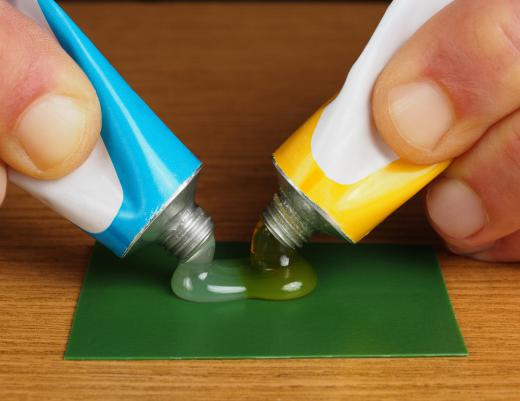Epoxy resins are created by transforming liquid polyethers into infusible solids through a special curing process. In most cases, resins are the result of a chemical reaction between epichlorohydrin and bisphenol-A. Overall, the creation of epoxy resin is part of an industry that generates over $15 billion US Dollars annually.
Epoxy resins have many different uses. For example, resins that are cured through exposure to ultraviolet light are commonly used in fiber optics, optoelectronics, and dentistry. Industrial tooling applications use them to make laminates, castings, fixtures, and molds. In the electronics industry, they can be used to make insulators, transformers, generators, and switchgear.

Around your home, epoxy resin can be valuable for repairing china, pottery, glass, wood, metal, and leather objects. It has a very strong and highly durable bond after it has set properly. These resins can be used as repair material for marine applications, but they should not be applied on the outer layer of a boat because UV light exposure will eventually cause the resin to deteriorate.

Additionally, epoxy resin is valuable as a crafting supply. People who enjoy making miniatures sometimes use this material to simulate water when creating beach and ocean scenes, although smaller amounts of resin can be used to design replicas of soups, liquid drinks, and fishbowls to be used in a child's dollhouse. Jewelry makers use epoxy resin to create necklaces, pins, bangles, bracelets, earrings, and rings that feature embedded glitter for a fun effect.
Epoxy resin can be purchased from most craft stores, hobby shops, hardware stores, and marine supply outlets. Most types are clear, but you can tint the mixture with oil paints if desired.
When using epoxy resin, it's important to follow certain safety precautions. You should work in a well-ventilated area and avoid inhaling the product's fumes. You should also wear goggles and gloves to protect your eyes and skin.
Rubbing alcohol can be used to clean up spills or wipe excess resin from your tools when your project is complete. Vinegar is also safe to use as a solvent to clean epoxy from your tools, brushes, or skin.

